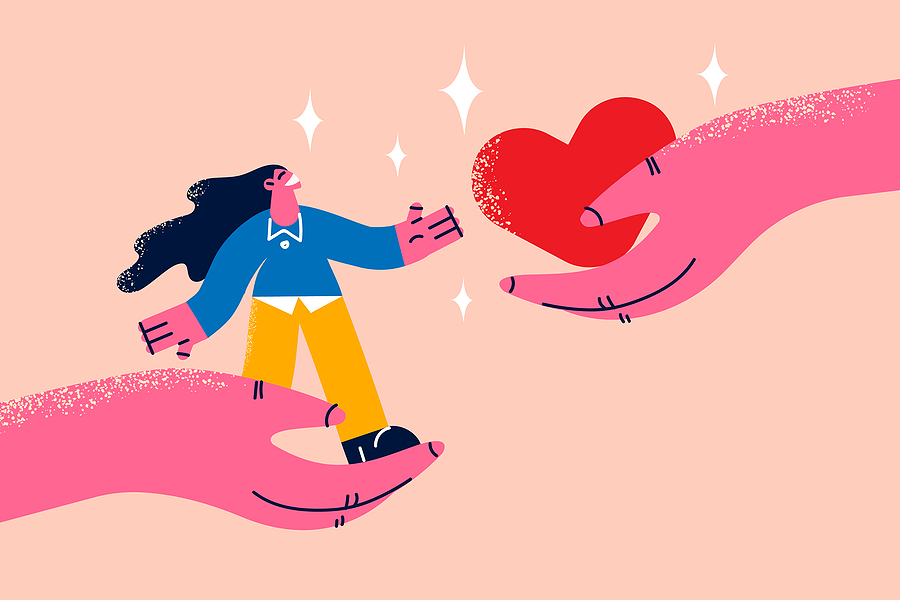Last week (May 2-8) was Mental Health Week, and when you visit the Canadian Mental Health Association’s website, you see the word “empathy” highlighted and emphasized on their landing page.
I’m glad they highlighted this particular word. In my opinion, empathy is perhaps the essential skill in building and sustaining your relationships with others.
And when you demonstrate empathy with people who are struggling emotionally and mentally, you are helping to alleviate their pain.
Here are a few thoughts on empathy and how you can practice it in your relationships.
Empathy Requires Imagination
Empathy is the ability to put yourself in the other person’s shoes; to fully imagine what it might be like to experience what the other person is experiencing.
One of the best ways to do this is to connect with the other person’s pain as opposed to their situation.
For example, you don’t have to lose a parent to empathize with someone who has just lost a parent. But, if you can imagine what it might be like to lose someone you care deeply about, you can better connect with and understand the pain the other person is feeling.
You may never have contemplated suicide before. But, can you imagine what it might be like to be so unhappy and to feel so hopeless that you don’t think life is worth living? If you can connect with that kind of pain or imagine what it might feel like, you are practicing empathy.
Connect with the Pain, Not the Problem
To be empathetic, it’s not necessary to have the same experiences as the other person. To demonstrate empathy, you need to concentrate more on the emotions the other person is feeling by imagining a time when you felt a similar emotion.
On a similar note, don’t judge the other person’s situation as “easier” or “worse” than yours. Recognize that we all interpret and perceive things differently, and the things that bother you might not bother them, and vice versa.
The objective is to imagine a time when you felt the same way they did and to connect with that pain. When you try to put yourself in the other person’s shoes, when you try to imagine what they are going through, then you are moving towards an empathetic response.
Summary
Everyone is different, and everyone’s path in life will hit different turns and bumps.
Some of the ‘bumps’ and challenges that another person is going through might be identical to yours. In those situations, it’s easier to understand their emotional experience.
But when your circumstances are different from someone else’s, it can be a little harder to understand what they are going through.
Just remember that to demonstrate empathy, you don’t need to have the same experiences as the other person. You simply need to connect with their emotions.
Empathy is about connecting with someone’s pain without judgment, without feeling as though you have to solve their problem or compare your experiences with theirs.
And when you can do this, you deepen your connection with the other person, helping them to feel understood and mentally healthier.
Richard
If you enjoyed this post, then pick up my new book, The Promise Wheel: Psychology For Growth and a Balanced Life. I provide dozens of strategies and insights on how to improve your health, relationships, and career so that you can achieve personal balance, feel less stressed, and have fun again.

